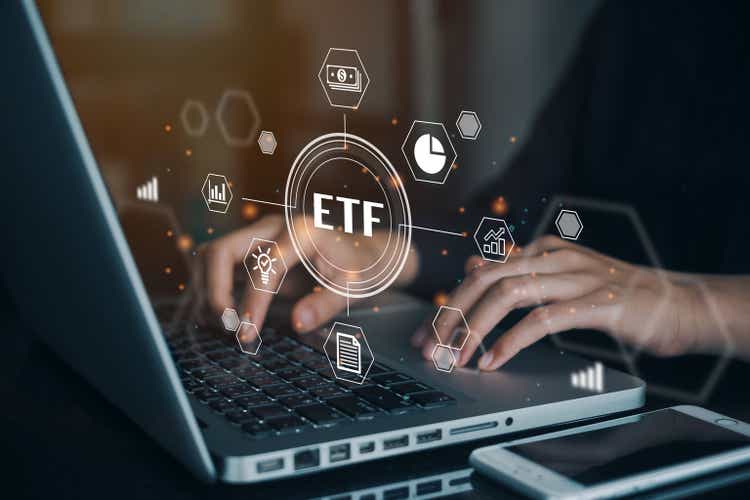Khaosai Wongnatthakan
David Mann, Head of Global Exchange-Traded Funds (ETFs) Capital Markets, Franklin Templeton
David Mann, Head of Global Exchange Traded Funds Capital Markets, takes this quiet end-of-summer opportunity to pre-empt any of the typical ETF investor concerns that can pop up during busier times.
I cannot believe that summer is almost over and my kids are already back in school. Time really does fly! One of the summer highlights for all in my household is sleepaway summer camps. The kids have an absolute blast, and we parents get a much-needed break. I remember the first time we sent our oldest away to sports sleepaway camp. Even though we knew he was going to have a blast, I must admit that my wife and I were a bit nervous imagining potential landmines. What if he was homesick or not eating enough or got injured? We desperately wanted daily updates but heard nothing all week. Of course, after seeing him at the end of the week we found out he considered it the best week ever. I guess sometimes no news is good news.
I was thinking about this concept recently in noticing the word “quiet” repeatedly showing up in many of the market recap emails that hit my inbox each morning. I fully realize the “quiet” here typically refers to ETF flows or the number of block trades or even the market itself. From an ETF capital markets perspective, “quiet” can also refer to the number of questions we field from investors with ETF-related concerns.
Looking back over my past posts, I considered some typical ETF investor concerns previously addressed. Sometimes it’s fun to imagine worst-case scenarios even if the truth is far more mundane. The truth is, we have not been getting many calls. But we take this time now to pre-empt any questions that may arise as everyone settles into their new post-summer schedules. A few common ones follow.
Will liquidity be there when it is time to sell?
Investors occasionally wonder if there will be ETF liquidity when it is time to sell, especially in smaller funds. Earlier this year, I discussed this in my post, “Don’t fear the ETF liquidity boogeyman.” I reviewed our entire lineup and found 37 instances in 2022 in which at least $20 million was redeemed from our fund in a single day. Setting aside the fact that I do not love highlighting investors leaving our funds, I can attest that I received zero calls regarding those sales. The ETF liquidity story applies for both buying and selling shares.
Could an ETF capture the imagination of the message board crowd?
At the beginning of 2021, the world watched in awe as stocks such as GameStop (GME) and AMC Entertainment Holdings (AMC) made meteoric moves on the back of their message board popularity. Given that ETFs trade like stocks, there was speculation as to whether ETFs could experience such moves. Not surprisingly, the ETF structure and ecosystem have proven robust, whether or not the ETF showed up on a message board.
Will active funds work as expected as per the “ETF Rule?”
One of the pillars of the “ETF Rule” is that it explicitly states there are no operational differences between index-based and active funds, something I discussed back in 2019. Just because the rule treated active funds no differently than index funds does not mean there was no speculation on whether this would work in practice. Sticking with the “no news is good news” theme, I can tell you that our funds have now had 66 custom basket creation/redemption orders without issue. Industrywide, I do not recall one article highlighting any operational issues with active ETFs.
Hopefully, folks reading this post have had some time to relax and enjoy the summer because if history is any guide, ETF volumes and flows should pick up over the final three or four months of the year. On the opposite end of that spectrum, I expect zero increases in the number of headlines questioning the structure or trading of ETFs. When it comes to ETF trading and liquidity, no news is indeed good news.
What Are The Risks?
All investments involve risks, including possible loss of principal. The value of investments can go down as well as up, and investors may not get back the full amount invested. Generally, those offering potential for higher returns are accompanied by a higher degree of risk.
For actively managed ETFs, there is no guarantee that the manager’s investment decisions will produce the desired results.
ETFs trade like stocks, fluctuate in market value and may trade above or below the ETF’s net asset value. Brokerage commissions and ETF expenses will reduce returns. ETF shares may be bought or sold throughout the day at their market price on the exchange on which they are listed. However, there can be no guarantee that an active trading market for ETF shares will be developed or maintained or that their listing will continue or remain unchanged. While the shares of ETFs are tradable on secondary markets, they may not readily trade in all market conditions and may trade at significant discounts in periods of market stress.
Any companies and case studies shown herein are used solely for illustrative purposes; any investment may or may not be currently held by any portfolio advised by Franklin Templeton. The opinions are intended solely to provide insight into how securities are analyzed. The information provided is not a recommendation or individual investment advice for any particular security, strategy, or investment product and is not an indication of the trading intent of any Franklin Templeton-managed portfolio. This is not a complete analysis of every material fact regarding any industry, security, or investment and should not be viewed as an investment recommendation.
Editor’s Note: The summary bullets for this article were chosen by Seeking Alpha editors.


Be the first to comment